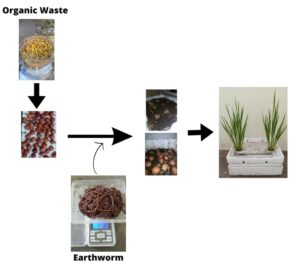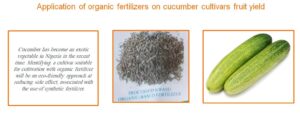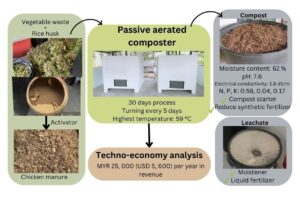Publisher Change Announcement:
Since the publication of Issue 1, Volume 13 (January 2024), the International Journal of Recycling of Organic Waste in Agriculture has been published by OICC Press (https://oiccpress.com/), and manuscript submission can be made via this link: https://mc04.manuscriptcentral.com/ijrowa
OICC Press Contact details:
Address: Stroud Court, Oxford Road, Eynsham, Witney, OX29 4DA, Oxfordshire, UK.
Tel: +44 1865 884350
E-mail address: [email protected]
Contact & Complaint form: https://oiccpress.com/contact-us-oicc-press/
The International Journal of Recycling of Organic Waste in Agriculture (IJROWA) is a double-blind peer-reviewed, open access quarterly journal.
Journal DOI: 10.57647/IJROWA
Journal Abbreviation: Int J Recycl Org Waste Agricul
Journal Title Acronym: IJROWA
Owner: Islamic Azad University
The IJROWA Journal has been indexed in the well-known world databases mainly; Scopus (CiteScore = 6.0), Scimago Journal Rank (Q2), Web of Science (JCR): Journal Impact Factor (IF = 1.5).
“Widget from the Scimago Journal & Country Rank (SJR) website”
All submitted manuscripts are checked for similarity through a trustworthy software named iThenticate to be assured about its originality and then rigorously peer-reviewed by the international reviewers.
IJROWA Journal is fully supported by the Islamic Azad University–Isfahan Branch, who provide funds to cover all costs of publication, including the Article Processing Charges (APC’s) for all authors. Therefore the journal is both free to read and free to publish.
|
The journal publishes high-quality review paper, in all areas of recycling of organic waste including: •Solid waste reuse in agriculture •Waste water reuse in agriculture •Utilization of organic wastes: composting •Ways to reduce, reuse and recycle organic waste •Social and economic impact of reduction, reuse and recycling of organic waste in agriculture •Methods to raise the public awareness of recycling and reuse of organic waste in agriculture •Organic waste utilization in animal and poultry nutrition •Urban food waste composting •Agricultural crop residues for wastewater treatment |

Purpose: Integrating vermicompost and hydroponics in rice agriculture presents an innovative and sustainable solution for transforming organic waste into valuable resources. This review explores the possible utilization of organic waste into productive resources through vermicompost and hydroponics in rice agriculture. Method: A comprehensive literature review was conducted to investigate the potential use of vermicompost derived […]

Purpose: The study investigated the growth and yield of cucumber cultivars under the influence of the organic fertilizers application. Method: A 4 x 5 factorial combination of four cucumber cultivars (Poinsett, Marketer, Marketmore, and Darina hybrid) and four organic fertilizers (Sunshine, Aleshinloye, Gateway, KWASU organic-based fertilizer-KOBF, and the control) in a completely randomized design at […]

Purpose: Vegetable waste (VW) composting was assessed using a passive aerated pilot-scale composter at Kundasang, Sabah. The passive aerated composting system proposed at Kundasang Community Composting Site (KCCS) was analyzed for its techno-economic impact. Method: The composting performance (temperature, organic matter loss, moisture content, pH value, electrical conductivity, and nutrient value) of 500 ± 2 […]
